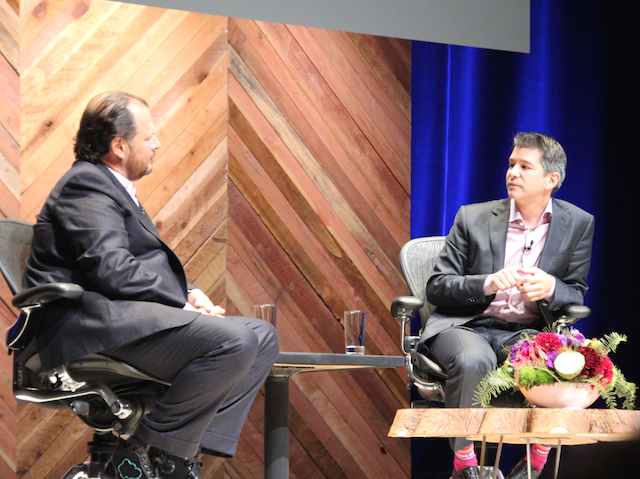At last year’s Dreamforce, Uber founder Travis Kalanick sat down with Marc Benioff to discuss the ride sharing service’s history and its aspirations to reinvent public transit.
Those aspirations are coming to fruition reports The Verge as local governments across the US sign agreements with Uber to supplement their public transport networks.
In entering those arrangements local officials are finding a number of problems, not least the service’s obsession with secrecy that falls foul of US public data practices and legislation.
That clash between the Silicon Valley obsession with hoarding intellectual property and US open government beliefs is one that will become more common as agencies attempt to ‘Uber-ize’ their services.
However the Uber model isn’t working well in some markets as the fate of Washio shows.
A month ago Mic Magazine wrote about how Washio was a symptom of the ‘disruption’ being wreaked on communities by the tech industry as high priced services displaced undercapitalised smaller business.
Washio’s success, like Uber and most of the tech startups following the Silicon Valley greater fool model, required capturing enough of the market to have a dominant position in the marketplace making it hard for new competitors to enter while driving out existing players who can’t afford to make losses indefinitely. This is path followed by Amazon, Microsoft and even IBM.
However this strategy is risky if there’s not enough capital, which Washio has now found with the service entering bankruptcy this week.
The sad thing is Washio’s unprofitable and unsustainable business model let them kill other companies whose owners, managers or investors were unable or unwilling to compete with a loss making enterprise.
For small businesses in particular the effects of a well funded megalith intent on driving them out of business is particularly cruel – as we saw with booksellers and Amazon.
Local governments need to be particularly aware of the risk of making Uber the only provider of neighbourhood public transport, leaving them the sole player that owns all their data could well prove particularly costly, one only wonders what could happen had a local hospital done a laundry deal with Washio.

Leave a Reply